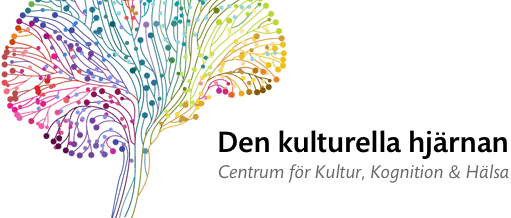Background
A revolution is going on in the cross scientific field of research where culture, brain, health and education meet each other.
How do different forms of culture (and other environmental stimuli) affect the brain? Which are the consequences for health, learning and wellbeing? Only a few years ago, there existed only anecdotal pieces of information. In last years it has, however, become possible to make evidence-based statements such as:
- music training enhance working memory and thus various forms of learning
- dance slow the progression of Parkinsons disease
- listening to music and literature enhance recovery after stroke.
At the same time, scientists can localize the effect, and describe them in molecular detail. We simply does not only know that it is happening. We also start to understand how and why.
There are, however, a deep gap of knowledge between the researchers in the international front of the field, and the professionals, decision makers and the broad audience all around Sweden. The Cultural Brain-initiative aims to bridge that gap.
Curate and translate the science
The Cultural Brain-initiative aims to follow the international front of research in the field of culture, brain, health and knowledge. It evaluates the scientific development and translates important findings and trends to a language easily understood by professionals and decision makers, as well as the general audience. The Cultural Brain-initiative thus differs from other popular scientific projects in that it does not only translate pieces of science where national scientists are active for a broader audience, but it also follows, curates and evaluates the international trends in a whole scientific field, to be able to select the relevant topics to translate.
To achieve this, The Cultural Brain-initiative
- creates a scientific advisory board with internationally distinguished scientists,
- is forming an editorial board that will make sure that material produced is reviewed by experienced scientists in the field, and
- recruit curators who combine deep knowledge and own experience in the sciences, with experience and skill in explaining and popularising science.
The results of the activities are published through the website/web portal “Den kulturella hjärnan / The Cultural Brain.
The web site ”The Cultural Brain”
The web site/web portal contains:
Bank of knowledge. A basic course of the area (under construction). Links to interesting popular scientific movies and TED-talks (here). Links to nice educational materiel at other sites (here).
Scientific reports. When curators meet an reliable article of high interest, they immediately make a short (one sentence) popularised summary, label it and put it in a list of articles of special interest in different fields (here).
Popular scientific descriptions of important reports. The most important of the scientific reports identified are selected for a longer popular summary, that point out not only the main message, but also explain how the study was done, and important caveats in the interpretation of the results (here).
Popular presentations of emerging fields. When a large enough body of reports show that an area of research should be of special interest for professionals and decision makers, we gather information about relevant articles, involved scientists and exciting projects where the knowledge has been applied. This far we have made such presentations on Art, dance and dementia, Music and learning and Culture helps after stroke.
Guidelines/recommendations: At the same time, a careful review of the scientific literature in the area shall start, resulting in a document, that can give specific decision support or recommendations to professions, scientists and decision makers, with translations of relevant protocols and/or instructions. (No such document is yet finalised).
The scientific landscape: Presentation of major research groups and leading researchers worldwide in the field of culture, brain, health and learning (here). Links to projects worldwide where the new knowledge is applied on a sound scientific basis (here). A number of scientific journals have recently started, dedicated to the emerging field (here).
It remains to be implemented a search system, that makes it possible to view all available material selected or sorted according to any combination of sphere of culture, aspect of health or learning, category of the material and paradigm of research.
Network
The initiative has formed an extensive national and international network of stakeholders in the field, including scientists, artists, professionals and decision makers.
Course for research students: Culture and Health
Linked to the project is a cross scientific course for resarch students ”Culture and Health”, given during autumn 2013/spring 2014 for researchers in medicine, arts, humanitarians and pedagogics. Read more here.

